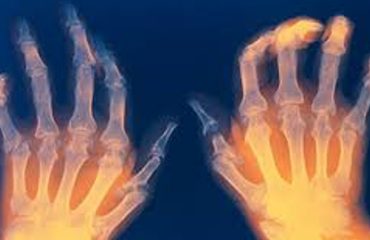Our fascination with sleep is universal and ancient. One of my favorite images from Greek mythology appears repeatedly in the cameo brooches of the Victorian era. It shows the goddess of night, Nyx, with a baby on each shoulder. One is her son Hypnos, the god of sleep and the other Thanatos, the god of death. Poppies (from which mankind has always generated a sedative) and an owl, herald of the night, often appear in the scene. I remember the first time I saw a mural of Nyx and her twin boys in the office of a particularly charming anesthesiologist. He saw his work as presiding over the patient in the operating room not only to produce profound sleep, but with careful modulation of the anesthetic, guarding him against its brother, death.
In the modern era, our interest in why we sleep, what happens during sleep and what troubles our sleep, particularly as we age, has persisted. But, unlike the ancient Greeks, we now have some answers. For example, one of the most important things that happens during sleep is a processing of all the memories of our experience during the day, erasing some that are harmful or disturbing and preparing others for long-term residence in the brain. Over 40 years ago, Crick and Mitchison described the winnowing out during sleep of disorganized signals the day’s events have produced. In an active process which they called “reverse learning, the brain discards unimportant or distorted remnants of our experience” [i] They emphasized that this is not the same as simple forgetting. This winnowing out of disorganized or harmful signals happens during rapid eye movement sleep (REM), and the dreams that are so abundant during this time (which we never remember) are the manifestations of this pruning of connections between neurons that are harmful or useless. Shuntaro Izawa and his colleagues in Japan have just shown that special melatonin concentrating hormone neurons are involved in the process.[ii] Active production of melatonin, the hormone produced by the pineal gland deep in the center of the brain, begins as daylight fades and promotes our descent into sleep. It is this concentration of melatonin in the hypothalamus that erases the fragmented, fantastical dreams produced during REM sleep. Izawa calls this “active forgetting”. One wonders if this particular mechanism in the brain could be harnessed to erase what we do not want to remember and to forget the past experiences that trouble us most.
[1] Crick F and Mitchison G. The function of dream sleep. Nature 304:111-114.1983.
[2] Izawa S, Chowdhury S, Miyazaki T et al. REM sleep-active MCH neurons are involved in forgetting hippocampus-dependent memories. Science.365:1308-1313.
Marianne J. Legato, MD, Ph. D. (hon. c.), FACP is an internationally renowned academic, physician, author, lecturer, and pioneer in the field of gender-specific medicine. She is a Professor Emerita of Clinical Medicine at Columbia University College of Physicians & Surgeons and an Adjunct Professor of Medicine at Johns Hopkins Medical School. Dr. Legato is also the Director of the Foundation for Gender-Specific Medicine, which she founded in 2006 as a continuation of her work with The Partnership for Gender-Specific Medicine at Columbia University. She received an honorary PhD from the University of Panama in 2015 for her work on the differences between men and women.
At its core, gender-specific medicine is the science of how normal human biology differs between men and women and how the diagnosis and treatment of disease differs as a function of gender. Dr. Legato’s discoveries and those of her colleagues have led to a personalization of medicine that assists doctors worldwide in understanding the difference in normal function of men and women and in their sex-specific experiences of the same diseases.
She began her work in gender-specific medicine by authoring the first book on women and heart disease, The Female Heart: The Truth About Women and Coronary Artery Disease, which won the Blakeslee Award of the American Heart Association in 1992. Because of this research, the cardiovascular community began to include women in clinical trials affirming the fact that the risk factors, symptoms, and treatment of the same disease can be significantly different between the sexes. Convinced that the sex-specific differences in coronary artery disease were not unique, Dr. Legato began a wide-ranging survey of all medical specialties and in 2004, published the first textbook on gender-specific medicine, The Principles of Gender-Specific Medicine. The second edition appeared in 2010 and the third edition, dedicated to explaining how gender impacts biomedical investigation in the genomic era, won the PROSE Award in Clinical Medicine from the Association of American Publishers in 2018. A fourth edition is forthcoming.
She also founded the first scientific journals publishing new studies in the field, The Journal of Gender-Specific Medicine, and a newer version, Gender Medicine, both listed in the Index Medicus of the National Library of Medicine. She has founded a third peer-reviewed, open access journal, Gender and the Genome, which focuses on the impact of biological sex on technology and its effects on human life.
Dr. Legato is the author of multiple works, including: What Women Need to Know (Simon & Schuster, 1997), Eve’s Rib (Harmony Books, 2002), Why Men Never Remember and Women Never Forget (Rodale, 2005), Why Men Die First (Palgrave, 2008), The International Society for Gender Medicine: History and Highlights (Academic Press, 2017), and most recently, The Plasticity of Sex (Academic Press, 2020). Her books have been translated into 28 languages to date.
As an internationally respected authority on gender medicine, Dr. Legato has chaired symposia and made keynote addresses to world congresses in gender-specific medicine in Berlin, Israel, Italy, Japan, Panama, South Korea, Stockholm, and Vienna. In collaboration with the Menarini Foundation, she is co-chairing a symposium on epigenetics, Sex, Gender and Epigenetics: From Molecule to Bedside, to be held in Spring 2021 in Italy. She maintains one of the only gender-specific private practice in New York City, and she has earned recognition as one of the “Top Doctors in New York.”





